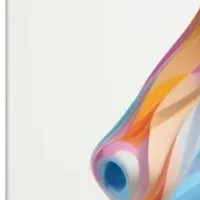
Global Economic Study Reveals Risk of Generative AI to Human Creators' Future
The Looming Threat to Human Creators in the Age of Generative AI
A recent report by CISAC (International Confederation of Societies of Authors and Composers), spearheaded by PMP Strategy, unveils startling economic insights into the impact of generative AI on human creators within the music and audiovisual sectors. This comprehensive study is the first of its kind on a global scale, providing a stark prediction of the challenges ahead for creators in these fields.
According to the findings, creators in music and audiovisual are projected to face a staggering cumulative loss of approximately €22 billion over five years due to the rise of generative AI. Specifically, it indicates that revenues for creators could decline by 24% in the music sector and around 21% in the audiovisual space by 2028, presenting a grave threat to the livelihoods of artists, composers, and industry professionals.
The Rapid Growth of Generative AI
The market for music and audiovisual content generated by AI is expected to flourish, leaping from a modest €3 billion today to an astounding €64 billion by 2028. This rapid growth underscores the lucrative nature of the generative AI market. However, it spells potential disaster for human creators, as the rising revenues from AI services are projected to amount to €9 billion by 2028—up significantly from the mere €0.3 billion currently.
The report points to significant shifts in revenue streams, indicating that generative AI music alone could capture about 20% of traditional music streaming revenues while accounting for around 60% of music library earnings by the end of the projected timeline.
Devaluation of Human Creativity
The implications of this economic shift are alarming. As creators become increasingly displaced by AI-generated content, many will find themselves unable to compete on the same level. Translators and adaptors for dubbing and subtitling face the most severe consequences, with estimates indicating a 56% risk of revenue loss, while screenwriters and directors could see reductions of 15 to 20% in their earnings.
The authors of the study argue that unless there are significant regulatory changes, creators will experience losses on two fronts: they will lose income due to unauthorized use of their works by generative AI systems, and they will also contend with diminished traditional revenue channels, leading to a precarious financial future.
Policy Implications and Recommendations
CISAC’s President, Björn Ulvaeus, acknowledges the study as a crucial resource for policymakers engaged in legislative discussions globally. He emphasizes the dual potential of AI: to invigorate creativity and to pose a substantial threat to human creators if not properly regulated.
CISAC's commitment is to collaborate with lawmakers to ensure that new regulatory frameworks prioritize creators' rights, foster transparency, and develop an AI industry that supports rather than undermines human creativity.
CISAC Director General Gadi Oron stresses that the industry's reliance on creators' original works must be recognized. As generative AI companies benefit economically from the works of human creators, it becomes imperative for regulatory bodies to safeguard those creators from unethical appropriation.
The Call for Ethical Policy Making
CISAC’s Vice-President, Ángeles González-Sinde Reig, echoes the need for policies designed with creators' rights at their core. While tools such as generative AI can enhance the work of filmmakers and storytellers, there is a palpable concern about the potential marginalization of creators' roles in the creative process.
The consensus is clear: human creators are integral to the design of AI technologies and should play a central role in the shaping of regulations governing their use. With governments worldwide engaged in legislative reviews regarding AI, the urgency for this protection of human creativity cannot be overstated.
In conclusion, as we stand on the brink of a generational shift in the creative sector driven by AI, the future will hinge on decisive regulatory measures. These must ensure that human creators are not only protected but also thrive in the evolving landscape of generative technology. The choices made by policymakers now will determine whether this technological revolution results in opportunities or obsolescence for creators of all kinds.
Topics Entertainment & Media)










【About Using Articles】
You can freely use the title and article content by linking to the page where the article is posted.
※ Images cannot be used.
【About Links】
Links are free to use.